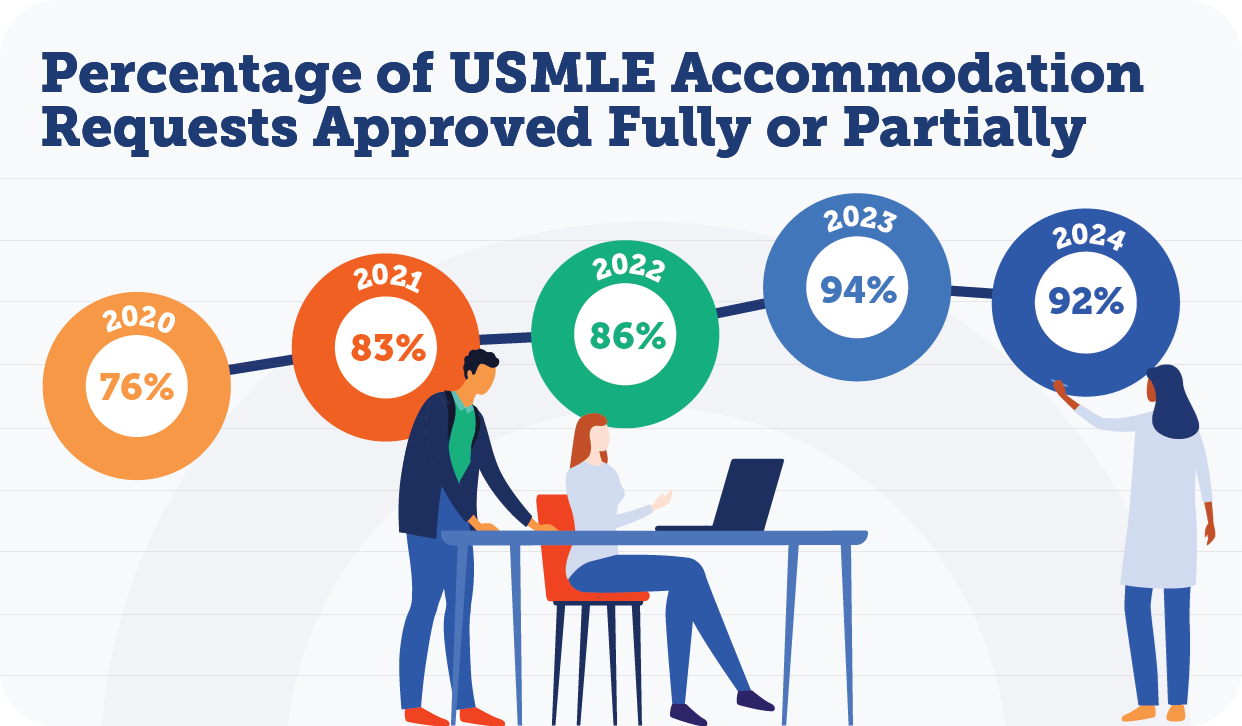Understanding the Test Accommodations Request Process for the USMLE
The USMLE program is committed to creating a reasonable and straightforward process for test takers requesting accommodations.
The video below provides an overview of how examinees can request test accommodations for the USMLE Step exams. Learn what to expect, what documentation is needed, and how to navigate each step with confidence.
